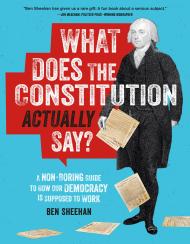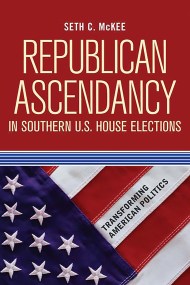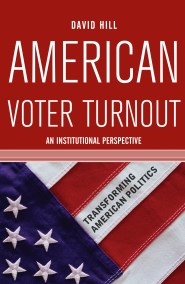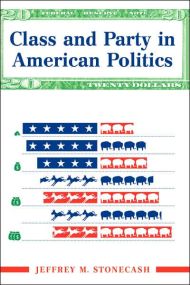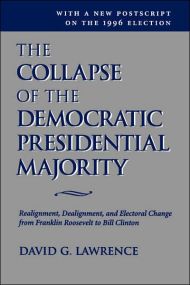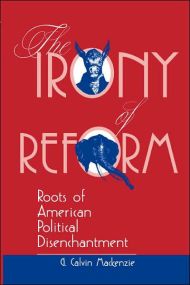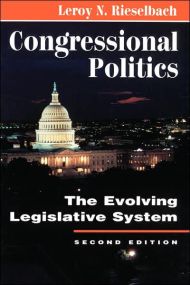Promotion
Use code BESTBOOKS24 for 25% off sitewide + free shipping over $35
By clicking “Accept,” you agree to the use of cookies and similar technologies on your device as set forth in our Cookie Policy and our Privacy Policy. Please note that certain cookies are essential for this website to function properly and do not require user consent to be deployed.
Revolving Gridlock
Politics and Policy from Jimmy Carter to George W. Bush
Contributors
By Craig Volden
Formats and Prices
Price
$22.99Format
Format:
- ebook $22.99
- Trade Paperback $39.00
This item is a preorder. Your payment method will be charged immediately, and the product is expected to ship on or around July 29, 2005. This date is subject to change due to shipping delays beyond our control.
Also available from:
Despite the early prospects for bipartisan unity on terrorism initiatives, government gridlock continues on most major issues in the wake of the 2004 elections. In this fully revised edition, political scientists David W. Brady and Craig Volden demonstrate that gridlock is not a product of divided government, party politics, or any of the usual scapegoats. It is, instead, an instrumental part of American government—built into our institutions and sustained by leaders acting rationally not only to achieve set goals but to thwart foolish inadvertencies. Looking at key legislative issues from the divided government under Reagan, through Clinton’s Democratic government to complete unified Republican control under George W. Bush, the authors clearly and carefully analyze important crux points in lawmaking: the swing votes, the veto, the filibuster, and the rise of tough budget politics. They show that when it comes to government gridlock, it doesn’t matter who’s in the White House or who’s in control of Congress; it’s as American as apple pie, and its results may ultimately be as sweet in ensuring stability and democracy.
Series:
- On Sale
- Jul 29, 2005
- Page Count
- 256 pages
- Publisher
- Avalon Publishing
- ISBN-13
- 9780813346236
Newsletter Signup
By clicking ‘Sign Up,’ I acknowledge that I have read and agree to Hachette Book Group’s Privacy Policy and Terms of Use



